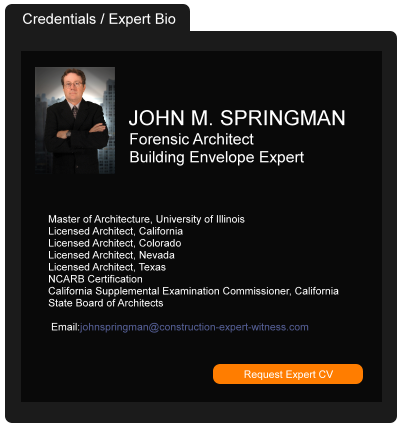New York Shuts Down Majority of Construction
March 30, 2020 —
Laura Bourgeois LoBue & Matthew D. Stockwell - Gravel2Gavel Construction & Real Estate Law BlogDue to pressure from construction workers, officials, and some construction workers having tested positive for COVID-19, the Empire State Development Corp. (acting on behalf of Governor Cuomo) has frozen all construction in New York today, with the exception of work on hospitals and health care facilities, transit facilities, roads and bridges, affordable housing and homeless shelters.
As a result, commercial construction and condominium projects are on hold, with the exception of work that must be completed to prevent unsafe conditions. Until now, construction has been considered “essential” in New York.
Reprinted courtesy of
Laura Bourgeois LoBue, Pillsbury and
Matthew D. Stockwell, Pillsbury
Ms. LoBue may be contacted at laura.lobue@pillsburylaw.com
Mr. Stockwell may be contacted at matthew.stockwell@pillsburylaw.com
Read the court decisionRead the full story...Reprinted courtesy of
Illinois Court Addresses Rip-And-Tear Coverage And Existence Of An “Occurrence” In Defective Product Suit
September 04, 2018 —
Brian Bassett - TLSS Insurance Law BlogIn Lexington Ins. Co. v. Chi. Flameproof & Wood Specialties Corp., 2018 U.S. Dist. LEXIS 135871, 2018 WL 3819109 (N.D. Ill. Aug. 10, 2018), the U.S. District Court for the Northern District of Illinois found that rip-and-tear costs could qualify as covered “property damage,” but the court rejected coverage for claims that the insured intentionally sold a noncompliant product as the suit did not allege an “occurrence.”
Lexington Insurance Company (“Lexington”) issued a CGL policy to Chicago Flameproof & Wood Specialties Corp. (“Flameproof”). During the policy period, a third party ordered fire-retardant-treated lumber from Flameproof for construction in Minnesota. Flameproof instead sent materials that were not tested, certified, or labeled as compliant. The third party installed the materials, discovered the non-compliance, and then removed the materials. Removing the materials allegedly damaged other portions of the building on the project. The third party then sued Flameproof, alleging costs associated with replacing the lumber as well as property damage to the other materials from the removal of the lumber. Flameproof tendered the claim to Lexington seeking a defense. Lexington filed a declaratory action in the Northern District of Illinois.
Read the court decisionRead the full story...Reprinted courtesy of
Brian Bassett, Traub Lieberman Strauss & Shrewsberry LLPMr. Bassett may be contacted at
bbassett@tlsslaw.com
Florida’s New Civil Remedies Act – Bulletpoints As to How It Impacts Construction
April 10, 2023 —
David Adelstein - Florida Construction Legal UpdatesThere has been much talk about Florida’s new Civil Remedies Act (
House Bill 837) that Governor DeSantis approved on March 24, 2023. As it pertains to construction, here is how I see it with key bulletpoints on the impact this new Act has on the construction industry:
- New Florida Statute s. 86.121 – This is an attorney’s fees statute for declaratory relief actions to the prevailing insured to determine insurance coverage after TOTAL COVERAGE DENIAL. (Note: A defense offered pursuant to a reservation of rights is not a total coverage denial.) This right only belongs to the insured and cannot be transferred or assigned. And the parties are entitled to the summary procedure set forth in Florida Statute s. 51.011 requiring the court to advance the cause on the calendar. The new statute does say it does NOT apply to any action arising under a residential or commercial property insurance policy. (Thus, since builder’s risk coverage is a form of property insurance, the strong presumption is this new statute would not apply to it.) Rather, the recent changes to Florida Statute s. 626.9373 would apply which provides, “In any suit arising under a residential or commercial property insurance policy, there is no right to attorney fees under this section.”
- Florida Statute s. 95.11 – The statute of limitations for negligence causes of action are two years instead of four years. This applies to “causes of action accruing after the effective date of this act.”
Read the court decisionRead the full story...Reprinted courtesy of
David Adelstein, Kirwin Norris, P.A.Mr. Adelstein may be contacted at
dma@kirwinnorris.com
Class Action Certification by Association for “Matters of Common Interest”
August 24, 2020 —
David Adelstein - Florida Construction Legal UpdatesAssociations have authority to pursue as a class, on behalf of all of their respective members, lawsuits “concerning members of common interest to the members.” Fla. R. Civ. P. 1.221. This includes, but is not limited to, the common property or the areas in which the association is responsible. But, what about matters or elements for which the association is not responsible or does not own? For example, issues or damages relative to a specific unit or owner that are prevalent throughout?
The Third District Court of Appeal addressed this question in Allied Tube and Conduit Corp. v. Latitude on the River Condominium Association, Inc., 45 Fla. L. Weekly D1518a (Fla. 3d DCA 2020) when in affirmed a class certification by a condominium association relating to the removal and replacement of the condominium building’s defective fire sprinkler system. In affirming the class certification by the condominium association, the Third District maintained:
Rule 1.221 expressly authorizes condominium associations to “institute, maintain, settle, or appeal actions or hearings in its name on behalf of all association members concerning matters of common interest to the members.” “[A]s to controversies affecting the matters of common interest . . ., the condominium association, without more, should be construed to represent the class composed of its members as a matter of law.” “[T]he common interest provision of the rule has been interpreted to permit a class action by the association for a construction defect located physically within a unit, rather than in the common elements, if the defect is prevalent throughout the building.” We, therefore, cannot say the trial court abused its discretion in finding that damages resulting from the replacement of the fire-sprinkler system throughout the building were a matter of common interest for purposes of certification at this stage of the litigation.
Allied Tube and Conduit Corp, supra (internal citations omitted).
Read the court decisionRead the full story...Reprinted courtesy of
David Adelstein, Kirwin Norris, P.A.Mr. Adelstein may be contacted at
dma@kirwinnorris.com
New York Court Discusses Evidentiary Standards for Policy Rescission Based on Material Misrepresentation
August 10, 2020 —
Robert S. Nobel - Traub LiebermanOn July 27, 2020, in the case of Mt. Hawley Ins. Co. v. AKI Renovations Group, Inc., (Sup. Ct. NY Co. 2020), Index No. 159421/2017 (unpublished), the trial court issued an Order granting summary judgment permitting rescission of a CGL policy based upon material misrepresentations in a policy application. The insured submitted an application in which it failed to disclose its demolition operations despite specific questions seeking this information. Mt. Hawley issued a primary and excess policy for the period of December 29, 2016 to December 29, 2017 (collectively, the policy).
Subsequently, the insured sought coverage for a claim in which it was alleged that the insured was acting as a general contractor for demolition of a three-story building when the plaintiff was injured. The insurer advised the defendants that it was rescinding the policy ab initio, and also returned defendants’ premium in its entirety. The insurer asserted that it would not have issued the policy had defendants disclosed their demolition operations, then filed the coverage action seeking a judicial declaration ratifying its rescission of the policy.
Read the court decisionRead the full story...Reprinted courtesy of
Robert S. Nobel, Traub LiebermanMr. Nobel may be contacted at
rnobel@tlsslaw.com
Waiver Of Arbitration by Not Submitting Claim to Initial Decision Maker…Really!
August 30, 2021 —
David Adelstein - Florida Construction Legal UpdatesArbitration is a form of dispute resolution that is a creature of contract. If you want an arbitrator to resolve your disputes, you need to ensure there is an arbitration provision in your contract. There are pros and cons to arbitration. One con is you lose the right to appeal. A couple of pros, however, are that your arbitrator(s), which you generally have some control in the selection of, will be versed in the construction industry and it can be a more efficient forum to resolve disputes in the times of COVID. Once you have your scheduling conference with the appointed arbitrator(s), you will be able to agree upon a set final hearing (trial) time and have milestone dates that work backwards from the final hearing date. This is much more efficient than being placed on an unrealistic trial docket or having to deal with the gamesmanship of motions just to be able to get your case at-issue for trial.
However, the right to arbitrate your dispute can be waived. This was the issue in Leder v. Imburgia Construction Services, Inc., 2021 WL 3177338 (Fla. 3d DCA 2021), which I will be the first to tell you the ruling is quite baffling to me. In a nutshell, the contractor, by not complying with the submission of a claim to the Initial Decision Maker was found to have waived the dispute resolution provision in the AIA contract. Not sure this makes sense, but this was the ruling.
Read the court decisionRead the full story...Reprinted courtesy of
David Adelstein, Kirwin Norris, P.A.Mr. Adelstein may be contacted at
dma@kirwinnorris.com
Marlena Ellis Makes The Lawyers of Color Hot List of 2022
January 17, 2023 —
Marlena Ellis - White and Williams LLPIn just her first year of practice, Marlena Ellis, Associate, is included in the Lawyers of Color Hot List of 2022.
Marlena joined the firm in 2021 as a full-time associate practicing both Commercial Litigation, Insurance Coverage, and Bad Faith Practice. She advises a variety of clients including corporations, commercial entities and insurance companies in complex disputes and breach of fiduciary duty matters.
The Lawyers of Color Hot List of 2022 honors junior and mid-level attorneys of color who exemplify integrity, leadership, and a passion for diversity in their roles. The selection committee spent months reviewing nominations to identify the right candidates for the list, and Marlena was one of the few chosen for this year.
Read the court decisionRead the full story...Reprinted courtesy of
Marlena Ellis, White and Williams LLPMs. Ellis may be contacted at
ellism@whiteandwilliams.com
New Notary Language For Mechanics Lien Releases and Stop Payment Notice Releases
January 21, 2015 —
Garret Murai – California Construction Law BlogThanks to Scott Wolfe, Jr. over at ZLien for bringing this to my attention:
Effective January 1, 2015, the notary language required for Certificates of Acknowledgment – used by notaries for mechanics lien releases and stop payment notice releases in California – now require the following new wording to appear at the top of the notary certificate in a box:
A notary public or other officer completing this certificate verifies only the identity of the individual who signed the document to which this certificate is attached, and not the truthfulness, accuracy, or validity of that document.
Read the court decisionRead the full story...Reprinted courtesy of
Garret Murai, Wendel Rosen Black & Dean LLPMr. Murai may be contacted at
gmurai@wendel.com


































































